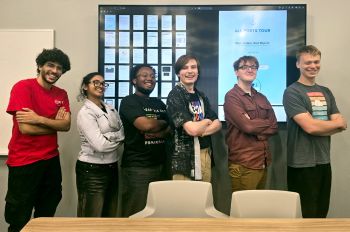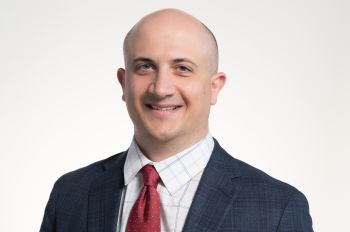Computer Science Professor to Apply Artificial Intelligence Techniques to Help Diagnose Diabetes Patients

According to the American Diabetes Association, 7.3 million adults in the United States have diabetes but are undiagnosed. Researchers from Illinois Institute of Technology have joined a team that is developing new techniques to identify individuals who are unaware they may be living with the disease.
A seed grant from Discovery Partners Institute, a technology and innovation center led by the University of Illinois System, is helping the team build techniques and algorithms using artificial intelligence, multivariate statistics, and engineering that will help spot potentially undiagnosed diabetics. The goal is to produce a scalable system prototype that allows medical professionals to harvest electronic health records data and identify people with Type 2 diabetes, to select successful treatments for each patient, and to explain why the algorithm made the determination to the patients.
Kai Shu, Gladwin Development Chair Assistant Professor of Computer Science at Illinois Tech, is a co-investigator of the project and will be leveraging advanced artificial intelligence and machine learning techniques to invent fair, explainable, and robust frameworks.
“I am very excited and pleased to participate in the seed grant project because it aims to tackle an important and challenging issue with a multidisciplinary team,” Shu says. “I am curious about how techniques and algorithms based on artificial intelligence, multivariate statistics, and systems engineering can better help medical facilities in the detection of Type 2 diabetes.”
Other Illinois Tech researchers on the team include Ali Cinar, the Hysoung S.R. Cho Endowed Chair, professor of chemical engineering, and director of the Engineering Center for Diabetes Research and Education, as well as Mudassir Rashid, research assistant professor of chemical and biological engineering. The team is led by Dr. Brian T. Layden, chief of the Division of Endocrinology, Diabetes, and Metabolism at University of Illinois Chicago’s College of Medicine. The team includes Dr. Andrew Boyd, Barbara Di Eugenio, Lauretta Quinn, Ulf Bronas, Cynthia Fritschi, Dr. Janet Lin, and Dr. Sirimon Reutrakul from UIC.
Shu says, “[The partnership] enables us to apply a simulator for simulation-based science and digital twins in health care, and novel machine learning and explainable AI systems to address the needs of health care.”
The project will use electronic health records of University of Illinois Health patients. Machine learning and AI techniques and algorithms will build models of Type 2 diabetes patients using historical records of those diagnosed with the disease. Through data shaping, processing electronic health records data, and clustering patients into groups with similar characteristics, these techniques should be able to predict the disease in new patients, determine the most successful interventions, and build simulators to observe the effects of these interventions.
A simulator using patients’ digital twins—virtual agents created to simulate the features and co-morbidities of actual patients—will enable a personalized case study for specific patients with Type 2 diabetes and provide additional assistance to medical care providers selecting personalized treatment.
The researchers will begin their work in October.
Photo: Gladwin Development Chair Assistant Professor of Computer Science Kai Shu




